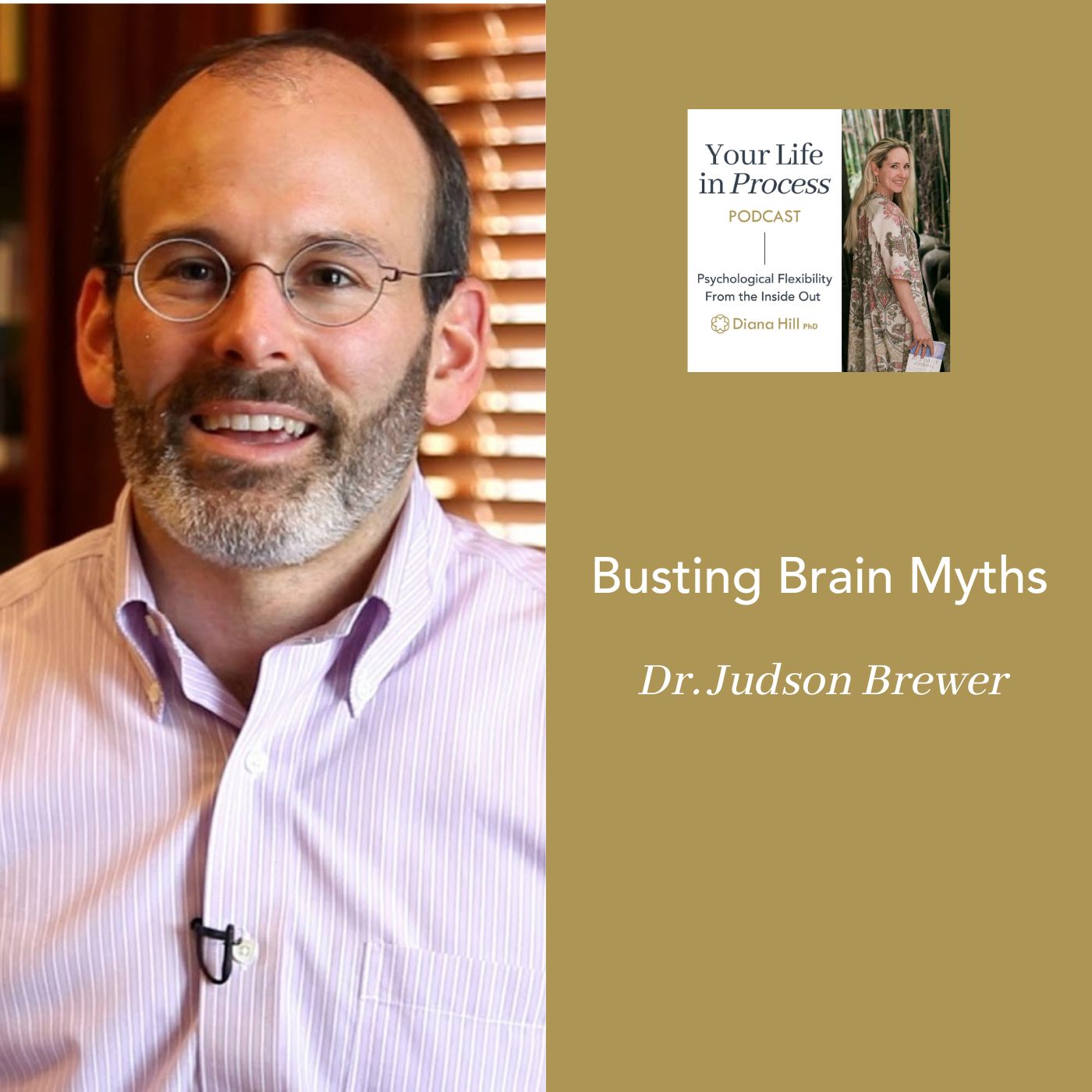Do we really have a lizard brain? Is serotonin the “happiness” neurotransmitter? Dr. Judson Brewer, our frequent contributor and neuroscientist at Brown University, will clarify some common misconceptions about your brain. Listen in to learn why dopamine isn’t your “pleasure” neurotransmitter and how knowing your brain better can help you be a better person.
About Judson Brewer
Jud Brewer MD PhD (“Dr. Jud”) is a New York Times best-selling author and thought leader in the field of habit change and the “science of self-mastery”, having combined over 25 years of experience with mindfulness training with his scientific research therein. He is the Director of Research and Innovation at the Mindfulness Center and associate professor in Behavioral and Social Sciences and Psychiatry at the Schools of Public Health & Medicine at Brown University. He is also the executive medical director of behavioral health at Sharecare Inc. and a research affiliate at MIT. A psychiatrist and internationally known expert in mindfulness training for addictions, Brewer has developed and tested novel mindfulness programs for habit change, including both in-person and app-based treatments for smoking, emotional eating, and anxiety. He has also studied the underlying neural mechanisms of mindfulness using standard and real-time fMRI and EEG neurofeedback. He has trained US Olympic athletes. coaches, and foreign government ministers, and his work has been featured on 60 Minutes, TED, the New York Times, Time magazine, Forbes, BBC, NPR, Al Jazeera, Businessweek, and others. Dr. Brewer founded MindSciences (which merged with Sharcecare Inc. in 2020) to move his discoveries of clinical evidence behind mindfulness for anxiety, eating, smoking, and other behavior change into the hands of consumers (see www.drjud.com for more information). He is the author of The Craving Mind: From cigarettes to smartphones to love, why we get hooked and how we can break bad habits and the New York Times best-seller, Unwinding Anxiety: New Science Shows How to Break the Cycles of Worry and Fear to Heal Your Mind (Avery/Penguin Random House, 2021). Follow him on Twitter @judbrewer.
Key Takeaways
- Your brain is highly metabolically active and almost all of the brain is active almost all of the time
- The amygdala has many roles including detecting threat
- “Lizard brain” is a heuristic to understand how your brain evolved
- Serotonin is a neurotransmitter found all over the body with many different functions
- Dopamine is not your pleasure neurotransmitter
- The cerebellum is small but mighty!
Related Resources
- Download Your Daily Practice for this episode
- Find out what kind of Striver you are and get your free Skillful Striving Toolkit
- Dr. Jud’s website
- Take Dr. Jud’s mini-courses on the brain on the Unwinding by Sharecare Ap
- Read Unwinding Anxiety and The Craving Mind by Dr. Judson Brewer
- Can You Look Me In The Face? Short-term SSRI Administration Reverts Avoidant Ocular Face Exploration in Subjects at Risk for Psychopathology
- ‘It’s the way that you look at it’—a cognitive neuropsychological account of SSRI action in depression
- Read Joseph LeDoux on the amygdala
- Rock out with The Amygdaloids Band
Diana’s Events
- Reserve your spot in Diana’s Reset and Restore Retreat in Costa Rica in 2023!
- Sign up for Diana’s From Striving to Thriving Summit!
- See Diana at an upcoming event
Connecting With Diana
Thank you for listening to Your Life in Process! Subscribe to the podcast for free on Apple Podcasts, Spotify, Google Podcasts. If you have any questions or feedback you can contact Diana by email podcast at yourlifeinprocess dot com or leave Diana an audio message at (805) 457-2776. Follow Diana at YouTube, Instagram, LinkedIn, Facebook, and Diana’s website.
Thank you to the team Craig, Angela Stubbs, and Ashley Hiatt. Thank you to Benjamin Gould of Bell & Branch for your beautiful music.
Remember when you become psychologically flexible, you become free.
Episode Segments
- [00:00] Introduction
- [00:24] Diana’s Upcoming Events
- [02:30] Welcome To Dr. Judson Brewer
- [03:36] Diana’s Brain Hat
- [05:09] Do We Only Use 10% Of Our Brain?
- [07:27] Does Our Amygdala Really Light Up When We Are Afraid?
- [10:17] Do We Really Have A Lizard Brain?
- [13:52] Is Serotonin Really Our Happiness Neurotransmitter?
- [18:53] Is Dopamine Really Our Pleasure Neurotransmitter?
- [22:53] What Does The Cerabellum Really Do?
- [26:40] The Brain’s Heuristics
- [30:48] Are You Sure?
- [31:39] Where To Learn More About Your Brain With Dr. Jud
- [32:48] Learn More About Brain Health At From Striving To Thriving Summit With Kimberley Wilson
- [33:10] Diana’s Episode Summary
- [34:13] Your Daily Practice
- [35:34] Connect With The Podcast

+ show comments
- Hide Comments
add a comment